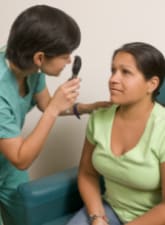Wisconsin Diabetes Profile
Diagnosed diabetes is prevalent across all 50 states and Washington, DC. People with diabetes are at high risk of heart disease, stroke, and other serious complications, such as kidney failure, blindness, and amputation of a toe, foot, or leg. CDC’s Division of Diabetes Translation (DDT) focuses on preventing type 2 diabetes, reducing diabetes complications and disability, and reducing diabetes-related disparities, which are differences in health across geographic, racial, ethnic, and socioeconomic groups.
View another state
Key Metrics in Wisconsin
$1.9M
Fiscal Year 2022 Funding
Nationally: $88.5M
406.4K
Total Diabetes Cases (Prevalence)
Nationally: 28.5M
31.3K
New Diabetes Cases (Incidence)
Nationally: 1.4M
8.2%
Notified of Prediabetes
Nationally: 8.8%
5.8M
State Population
Nationally: 328.2M
$4.1B
per year in direct medical costs attributed to diabetes
Nationally: $237B
$1.4B
per year in indirect costs attributed to diabetes
Nationally: $90B
Does Wisconsin Have a Diabetes Action Plan?
Yes
(28 States Nationally)
Wisconsin Program Activities
National Diabetes Prevention Program (National DPP)
43
CDC-recognized organizations offering the lifestyle change program
(2.1K Nationally)
6
Medicare Diabetes Prevention Program suppliers
(288 Nationally)
7.9K
Participants enrolled in the National DPP lifestyle change program
(583K Nationally)
Wisconsin Medicaid program does not have some level of Medicaid coverage for the National DPP lifestyle change program
Diabetes Self-Management Education and Support (DSMES)
53
Recognized/accredited DSMES service providers
(2.1K Nationally)
42.2K
People with diabetes with at least one encounter at a recognized/accredited DSMES service
(929K Nationally)
Wisconsin Highlights
- In Wisconsin, 10 new telehealth delivery sites were established in underserved areas to increase access to the National DPP lifestyle change program from September 2020 to September 2021.
- The Wisconsin Department of Health Services and the Wisconsin Institute for Healthy Aging worked with a diabetes educator to develop a recorded bonus session that diabetes self-management program leaders can use when they do not have a DSMES site near them or when a diabetes educator is not available for a live appearance.
Related Resources

